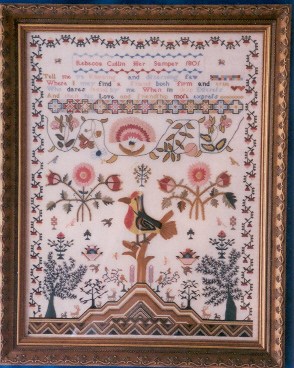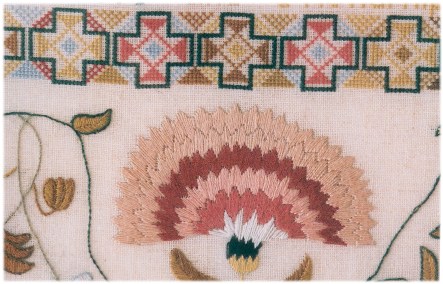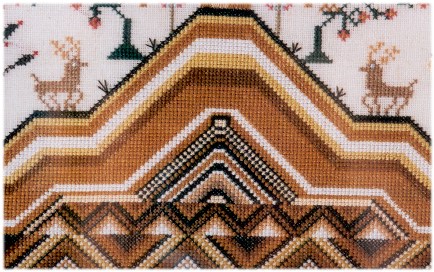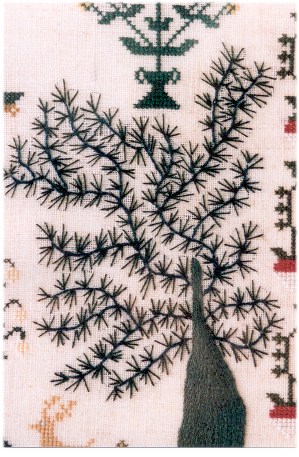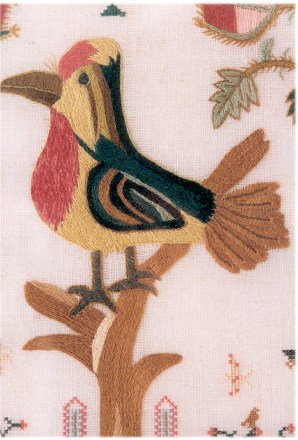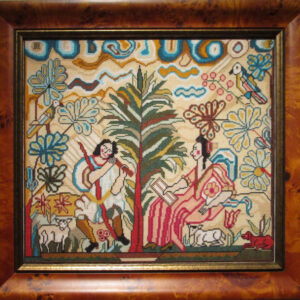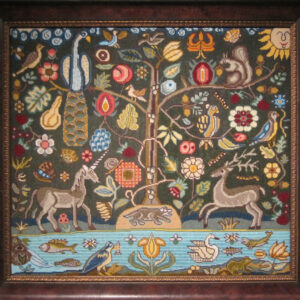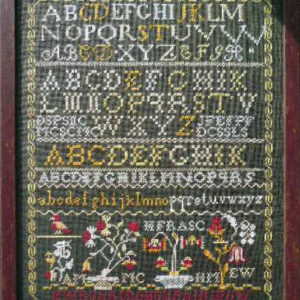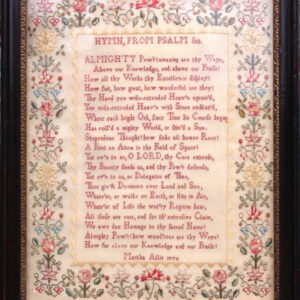Rebecca Cullin 1801
From: $29.00
Linen: 40 count, 35 count
Finished size: 22-1/2″x16-1/2″
Rated: Advanced
Description
A fine and rare English sampler
In America, considerable research has been done, particularly in recent years, exploring the various regional schools of needlework. The influence of specific teachers has drawn great attention to recognizable regional styles, their inspiration, evolution, and how the needlework fit into the social scheme of the period, As a “new” country, tracing the roots of American samplers has been easier than in Europe, even England, where many samplers have survived, but little is actually known about them. A relatively large number of English samplers from the earliest period (late sixteenth/early seventeenth centuries) exist, but records were rarely kept on schoolgirl endeavors, the samplers were saved, but usually tucked away in trunks, drawers, attics, for centuries, and to date not much research has been done to attempt to identify specific English schools and teachers of fine needlework (with the obvious exception of Juda Hayle of Ipswich). Rebecca Cullin’s magnificent sampler is clearly of a specific school. From the distinctive “fan light” carnation, to the large rose sprays and feather trees, and the strongly geometric stepped hill at the bottom, it is nearly identical to at least two other known samplers: one made by Jane Ballard in 1799 (currently residing in the Worcester, MA, Art Museum) and the other made by Martha Bates in 1801, in the collection of the Fitzwilliam Museum in Cambridge, England. Rebecca Cullin’s original sampler was stitched using a combination of freehand and counted thread satin stitches. We have supplied two versions with each kit and graph pack: one graphed and drawn as the original was done, the other translated into an entirely graphed version. Stitches used include cross, counted (and or freehand) satin stitch, bullion knots, eyelets, straight stitch, and stem stitch.
Additional information
| Format Options |
|---|

